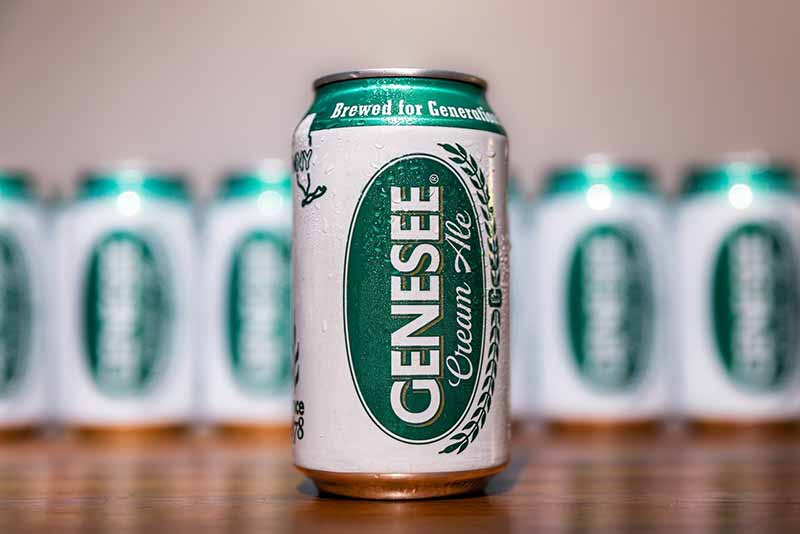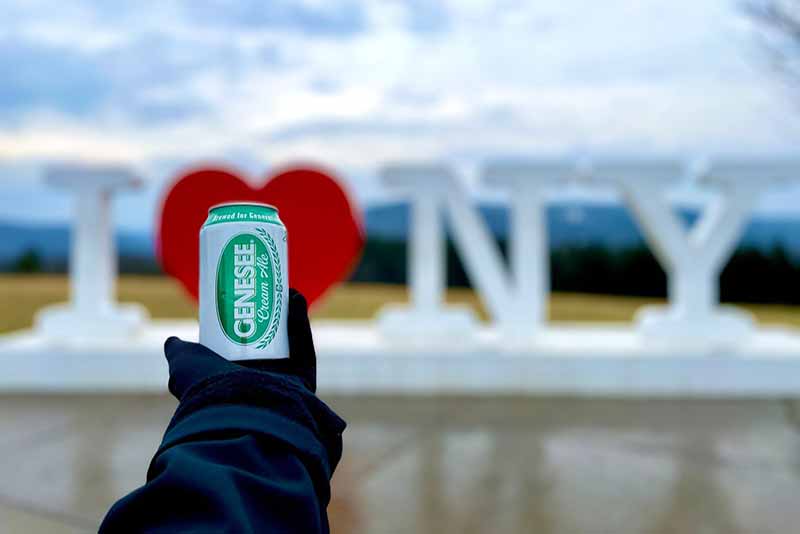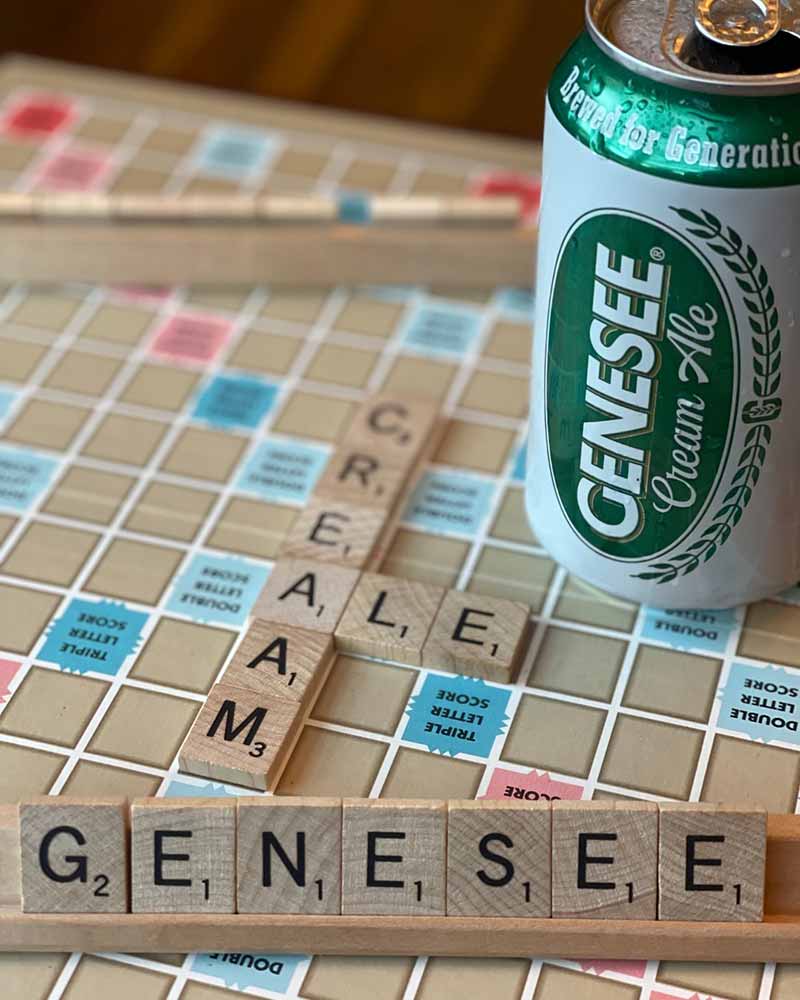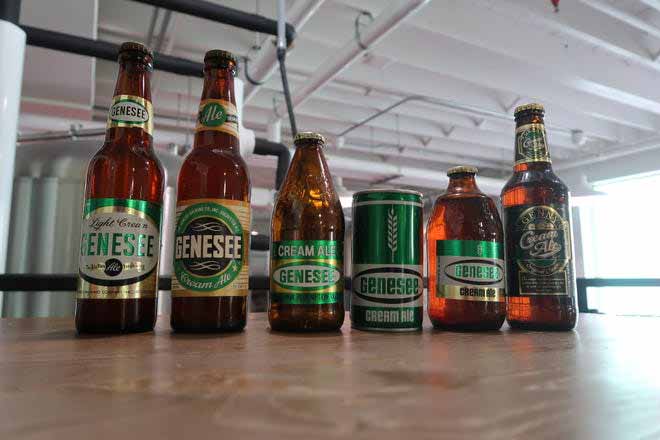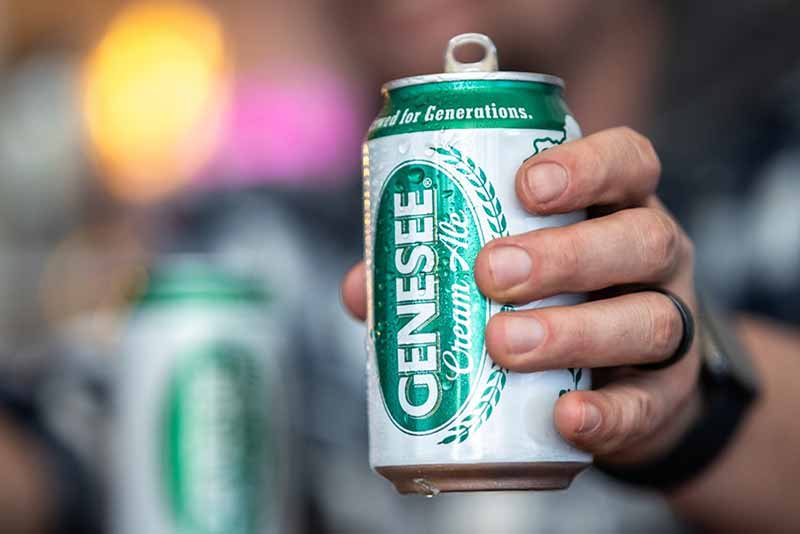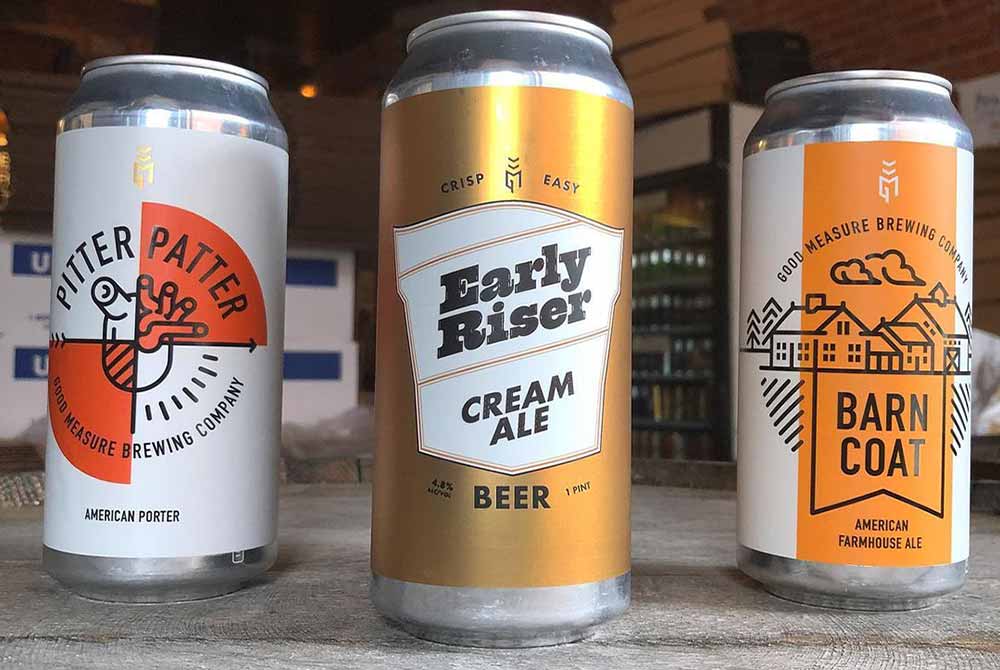Shop
The Cult of Genesee Cream Ale
Smooth like a lager and crisp like an ale.
Looking for More Cult Stories?
Some American beer styles are challenging to categorize. For instance, modern IPAs blur the lines between styles, leaving even the most competent brewers scratching their heads. But even older styles give brewers trouble: The cream ale can be brewed with either ale or lager yeast and has less restrictive brewing parameters with hops and malts. But one cream ale has come to represent the style: Genesee Cream Ale, made by The Genesee Brewing Company in Rochester, NY.
Known as “Genny [pronounced Jenny] Cream” or just “Genesee,” Genesee Cream Ale was first brewed in the 1960s under the tagline “smooth like a lager and crisp like an ale.” Over the last sixty-plus years, the beer won numerous awards, developing a cult-like following for its distinguished taste, history, and regionality.
“There’s always going to be an affinity for beers that feel like hometown heroes, especially coming from tougher regions of the country,” says Matt Ozelius, sales manager at Jack’s Abby Brewing. “The same way that there is a ‘drink local’ feel in craft beer, there’s a sense of David and Goliath for macro beers as well, and Genny Cream Ale felt like the little guy when I started drinking it twenty years ago. It was ’Gansett pounder cans and Genny thirty racks taking on the ‘big guys’ in my cheap drinking heart.”
Genesee Brand Director Inga Grote-Ebbs echoes Ozelius’ sentiments, saying, ”When Genesee Cream Ale was first released in 1960, it quickly became popular, especially with younger drinkers looking for something new and different. While it became a bestseller across the U.S., the states that drove a lot of the volume were New York, Pennsylvania, and Ohio, which still comprise the bulk of Genesee’s sales today. I assume its affordability and drinkability helped its popularity across the Rust Belt.”
The History of Genesee Cream Ale
Dating back over 140 years, The Genesee Brewing Company, based in Rochester, New York, is one of the largest and oldest continually operating breweries in the United States.
In 1878, Matthius Kondolf purchased Reisky & Skies Brewery and changed the name to The Genesee Brewery after the Genesee River. Kondolf, a wealthy entrepreneur, worked at his father’s German brewery in Rochester during his youth.
In 1916, the company hired Louise A. Wehle—then the youngest brewmaster in New York State. After Prohibition, in 1932, Wehle purchased the company from his former employer, setting up a vast distribution throughout Northeastern states and, later, the Midwest, developing a large following of young drinkers excited about Genesee’s products.
It took another thirty years before Clarence Geminn, a brewer at Genesee, created Genesee Cream Ale by trying to find a middle ground between two other Genesee offerings: a dry ale and a heavier beer named 12 Horse Ale.
The Popularity of Cream Ale
Though the cream ale style existed before 1960, Geminn’s recipe popularized it, quickly becoming one-third of Genesee’s million-barrel annual output—which, at the time, neared one million barrels.
“Cream ale has had many heydays and might be experiencing one now. But between 1978 and 1984 or so, Genesee Cream Ale became the biggest-selling domestically produced ale in the U.S.,” says Genesee Brewery Historian Paul Constantine. “We don’t have a ton of numbers from production back then, but as far as we can tell, those were the glory days. Then again, Genesee Cream Ale did win ten medals from 1987 to 2005 at the Great American Beer Festival, and our beloved beer continues to tap into a loyal and growing fanbase every year.”
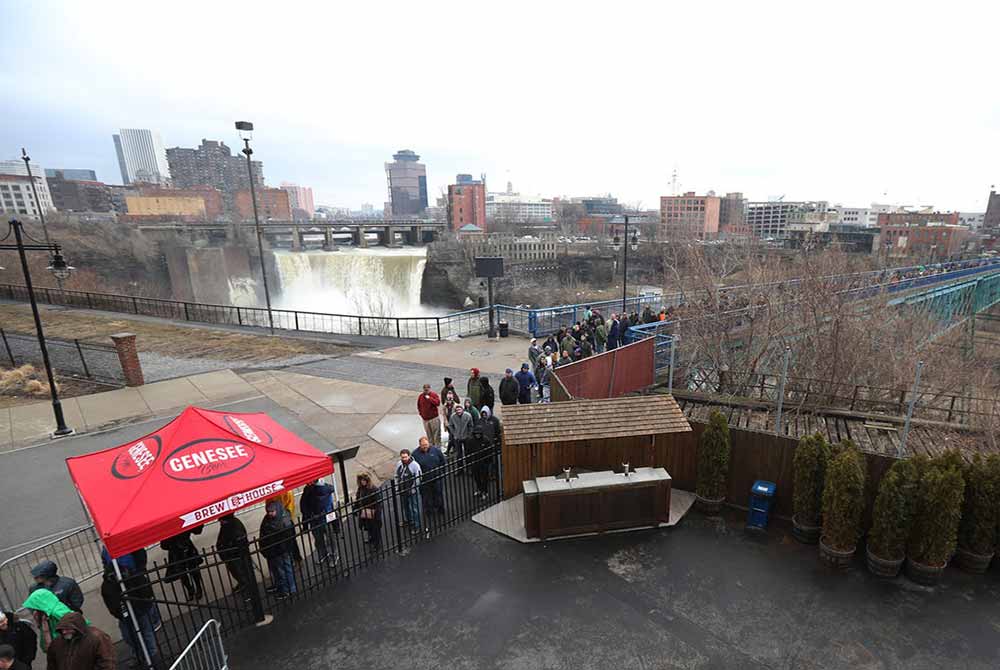
Photograph courtesy of: Tina MacIntyre-Yee / Rochester Democrat and Chronicle
Most recently, Genesee even started collaborating with well-known craft breweries.
In 2019, Genesee teamed up with New York’s Other Half Brewing on “Genesee Dream Ale.” This twenty-barrel batch of beer took the classic recipe of Genesee and powered it with Other Half’s notable “Dream” and “Daydream” IPAs, creating a version for both purists and hopheads alike. On the release day, the line to buy the beer stretched across the Pont de Rennes bridge over the Genesee River, selling out within the morning. Other Half and Genesee packaged the 4.6% ABV oat cream ale in 16oz cans, bearing Genesee’s classic green label with an Other Half twist.
The Distinctive Can of the Genesee Cream Ale
Since the 1960s, Genny Cream Ale has undergone many package design iterations, but one constant has been the dark green color of the can.
In 2002, a rebrand won the “Best New Package Design” award at the World Beer Cup. That same year, Genny Cream Ale received a gold medal for “American Lager / Ale or Cream Ale.”
Fifteen years later, Genesee revealed an all-green can, helping the beer stand out on the shelves. The distinctive and recognizable color is a bit loud and a nod to more vintage motifs.
Heather Mojer, managing partner and director of procurement at State Park and Mamaleh’s Delicatessen in Cambridge, Massachusetts, admires the “retro branding” and believes affordability is also what makes this beverage attractive to guests.
Genesee Cream Ale: A Truly American Beer
With such a rich history, Genesee Cream Ale lends itself to pairings with quintessential American past times. “I learned about Genesee when I moved to the Massachusetts border, only minutes from New York,” shares food and beverage writer Stephanie Gravales. “I was in my twenties before I was a writer, and really before I got interested in beer. Genesee was the beer for backyard parties and sitting around the campfire.”
Gravales is just one of many people who have similar sentiments.
“Everybody has a Genny story,” says Grote-Ebbs. “Cream ale brings back so many memories from drinkers about college parties, sneaking a beer from their dad’s or uncle’s fridge. Fans willingly share these, and I love hearing about the generational aspect of our beers.”
Which is probably why Genesee Cream Ale will have new and old fans for many years to come.
“Especially over the past year, we have noticed that there is a resurgence in trusted brands, and that is one thing our fans can one hundred percent count on,” says Constantine. “Consistency of high-quality, great-tasting cream ale, made the same way at the same brewery for over sixty years. … The style is definitely making a comeback, and as the OG of cream ale, we’re really proud to be part of it.”

